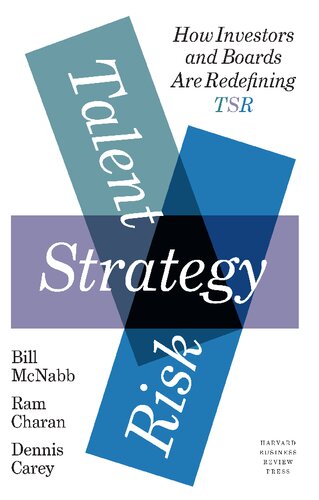

Most ebook files are in PDF format, so you can easily read them using various software such as Foxit Reader or directly on the Google Chrome browser.
Some ebook files are released by publishers in other formats such as .awz, .mobi, .epub, .fb2, etc. You may need to install specific software to read these formats on mobile/PC, such as Calibre.
Please read the tutorial at this link: https://ebookbell.com/faq
We offer FREE conversion to the popular formats you request; however, this may take some time. Therefore, right after payment, please email us, and we will try to provide the service as quickly as possible.
For some exceptional file formats or broken links (if any), please refrain from opening any disputes. Instead, email us first, and we will try to assist within a maximum of 6 hours.
EbookBell Team

5.0
50 reviewsBalancing the short-term and the long-term is a perennial struggle, but new developments put boards squarely at the centre of this dilemma and in need of guidance. Much of the $14 trillion of assets that firms like Vanguard, BlackRock and State Street manage is now held in index funds, creating a vast class of permanent institutional investors. These so-called passive investors (unlike activist investors, passive investors don't have the power to exit the fund) own almost 60 per cent of the Fortune 500 — and they have found their voice. Perhaps best exemplified by BlackRock's Larry Fink, these investors are stating in no uncertain terms that simply managing for short-term shareholder profit is not acceptable.
In this agenda-setting book, three leaders who have been on the front lines of these changes with boards, management teams, and the investment community challenge leaders to rethink TSR (total shareholder return). Since TSR cannot keep the short and long term in balance, McNabb, Charan, and Carey argue that boards should focus on a different kind of TSR — talent, strategy and risk — because decisions and actions around these factors, more than any others, determine whether or not a company creates long-term value.